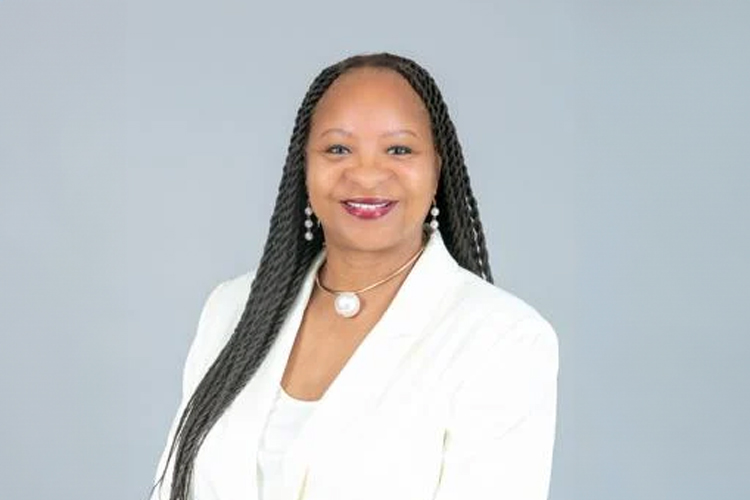Monekka Munroe, Ed.D.
Doctor of Education in Higher Education Leadership

I knew I would not be able to climb the ladder without a doctoral degree. Having those three letters at the end of your name makes people believe in you. With my life experiences over the years, I don’t know how to give up.
Monekka Munroe, Ed.D.
On what might have been the worst day of Monekka Munroe’s life, a single disastrous event derailed her dream of becoming an elementary school teacher. Instead, she was in jail and facing five years in prison.
Fast forward 19 years.
Motivated by her experience, she now teaches criminology and criminal justice as an assistant professor at Virginia Union University. In 2017, she earned a Doctor of Education in Higher Education Leadership from NSU’s Abraham Fischler College of Education.
The educator and advocate for women ensnared in the criminal justice system– who never became an elementary school teacher– now aspires to be a university president.
“It’s amazing how all of this happened,” said Munroe, who was the guest speaker at the Fischler College 2017 Summer Institute, where she shared with students “10 Steps to Completing a Successful Dissertation.”
“Had I not been arrested, I probably would be an elementary school teacher, never knowing there was such a need for an advocate of another population of people. My life has shifted in such a positive way because of that experience. Everything has come full circle.”
Munroe grew up in central Florida, assigned to special education classes and made to believe she would never move beyond a high school education. After her daughter was born, she knew she wanted a better life for her. She moved to Tallahassee, enrolled in college classes, and worked at a part-time job as a sales clerk. She received public assistance in the form of a welfare check and Medicaid coverage for her daughter.
“When I got to Tallahassee, I remember I had 108 dollars in the bank,” she said. “I was determined to make it work. The next year I was arrested.”
In November 1998, police stopped Munroe because of a broken tail light. With her daughter in the car, she was arrested on a warrant issued for failure to report her part-time income to the state.
Munroe was charged with public assistance fraud. The prosecutor asked for a five-year prison sentence–the maximum allowed for the third-degree felony.
Munroe pleaded no contest. The judge gave her probation and the chance to wipe the slate clean. Munroe paid back the money, finished her bachelor’s degree, and earned a master’s degree in criminal justice at Florida A&M University, where she also taught classes.
“Before the arrest, I wanted to be an elementary school teacher,” she said. “I wanted to be the one who encouraged children to believe in themselves. Growing up in special education classes, I didn’t think I would get past high school. I did, but there were so many bumps in the road.
“When I went through the criminal justice process, everything changed. I talked to other women in jail. I asked them why they were there. I learned that not everybody sitting in a jail cell is guilty. I became an advocate. After every speech, people would come up to me and say, ‘I went through this. Do you think I can go to college even though I have a criminal record?’
“If I can get through growing up in special education classes, being homeless, contemplating suicide when I was homeless, being arrested…if I can do all that and still finish college while raising my daughter, my message to other women is, ‘of course you can do it.’”
Munroe began teaching criminal justice, holding public workshops, and working with legislators on prison reform.
“I knew what it was like to lead a classroom, but I knew I couldn’t open the door for others unless I was in a leadership position,” said Munroe, who enrolled at NSU’s doctoral program and wrote her dissertation about why college opportunities should be available to inmates.
“My ultimate goal is to become a university president. I knew I would not be able to climb the ladder without a doctoral degree. Having those three letters at the end of your name makes people believe in you. With my life experiences over the years, I don’t know how to give up.”
